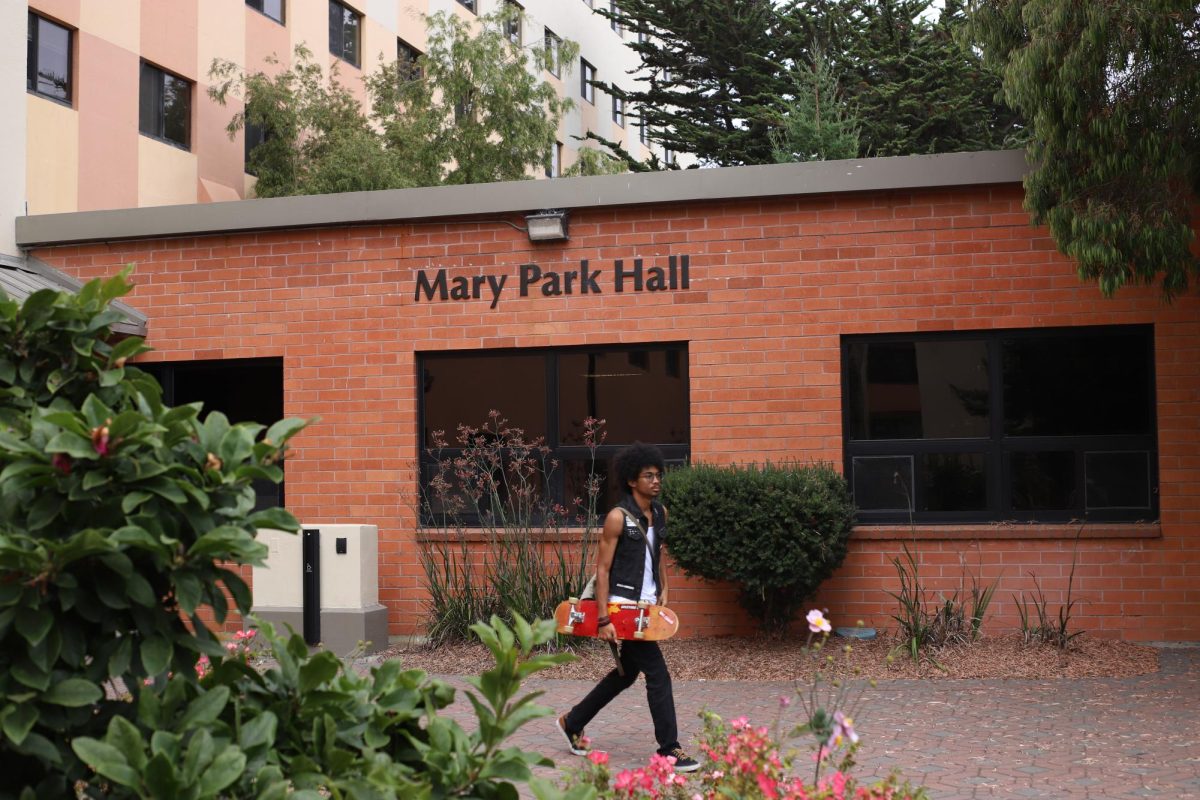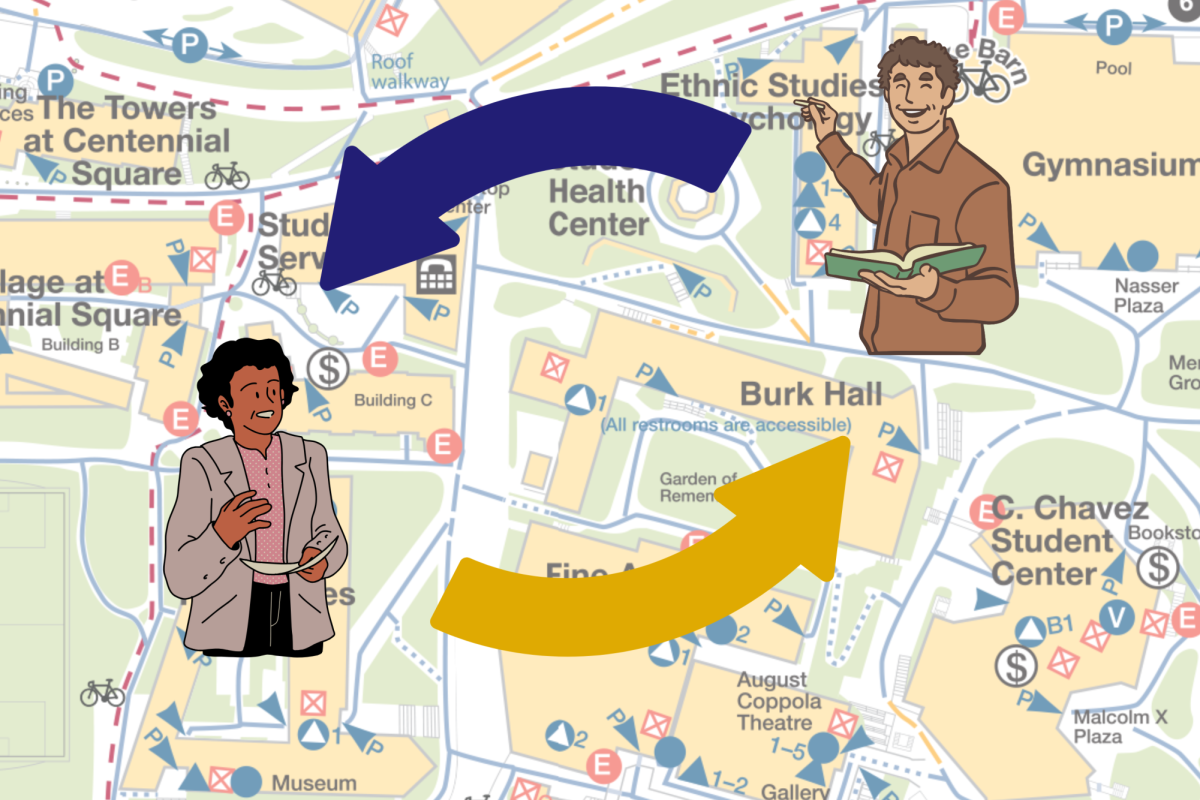The hustle and bustle of campus life is a polarizing factor for many San Francisco State University freshmen, who have to weigh the pros and cons of living on or off campus.
Dorming on campus is not for the weak of heart -– sharing communal living spaces, living far from home, and navigating the social etiquette of living with roommates are trials that SFSU students have faced for decades, said student Sophia Gilbert.
Gilbert is one of many freshmen who started this fall, and she’s formed her own opinions on what housing services can be doing better.
“I think housing could have done better with establishing connections between floormates,” Gilbert said. “We would have hoped that there would have been more activities to meet others.”
Samba Sharma, a freshman exchange student from India, was inclined to agree. He found it hard to make connections on campus earlier in the semester.
“I think it is pretty hard to connect with people here,” Sharma said. “Everybody’s busy, right? You go to classes, the professor starts teaching, and after the class is over everybody just goes off to another classroom. Not everybody’s staying, so I find it really hard to make friends.”
A lack of strong campus life has long been a complaint amongst SFSU students, as the campus mostly consists of commuter students who leave the premises after class.
“There’s definitely been a desire to be a residential campus,” said David Rourke, director of Residential Life. “Carnegie campus classifications require 25% of your campus population to be living in housing before you’re considered a residential campus. We are currently at 18%. So we’re close, but we’re not quite there yet.”
The Carnegie Classification, which is released through the Carnegie Foundation for the Advancement of Teaching, it’s considered the “leading framework for recognizing and describing institutional diversity” for higher education nationwide, according to their website.
For the few students able to find housing on university premises, communal spaces can be hard to navigate in combination with high foot traffic and periodic crowds as students go through their days.
Sharma, who instead elected to rent in nearby Park Merced, didn’t think university housing was worth it.
“On-campus [housing] is pretty expensive in terms of rent and meals,” he said. “And [the lease] was only for nine months –– in the summer we have to shift somewhere else.”
Nevertheless, the pros of living on campus outweigh the cons for Gilbert and her roommate Abigail Williams. For one, their accommodations are nicer than those they might find elsewhere.
“I feel like I’ve heard so much about small spaces in dorms, and definitely there are other campuses with bigger dorm rooms, but I was honestly expecting smaller,” Gilbert said.
Their first impressions of SFSU changed for the better after acclimating to their new living space.
“I thought the campus was a little smaller, but then I started exploring it more and I realized how much bigger it is,” Williams said.
In addition to being surprised by the university premises, the two praised campus safety resources.
“I was expecting to feel more apprehensive to walk at night, but I think they make the campus more safe,” Gilbert said.
Sharma noted the extensive student life resources as well as the diversity of the campus community.
“It has a lot of diversity. There’s nothing like racism and that kind of thing is nil around here,” he said.
Overall, freshmen students’ first impressions of SFSU vary according to their own experiences, taking note of both positive and negative aspects of student housing and campus culture.
Ultimately, though, students all hope to gain more from their time on campus in addition to community development.
When asked, students expressed their own priorities and confidence in campus resources other than those provided by Residential Life.
“I would say my priority is just networking and getting to know people, specifically on my floor and in the Maries [Mary Park Hall and Mary Ward Hall] in general,” Gilbert said.
Sharma expressed a desire to get ahead academically.
“I would really like to gain knowledge as I work so I can prepare for law school because I intend to become a lawyer or attorney,” he said.










